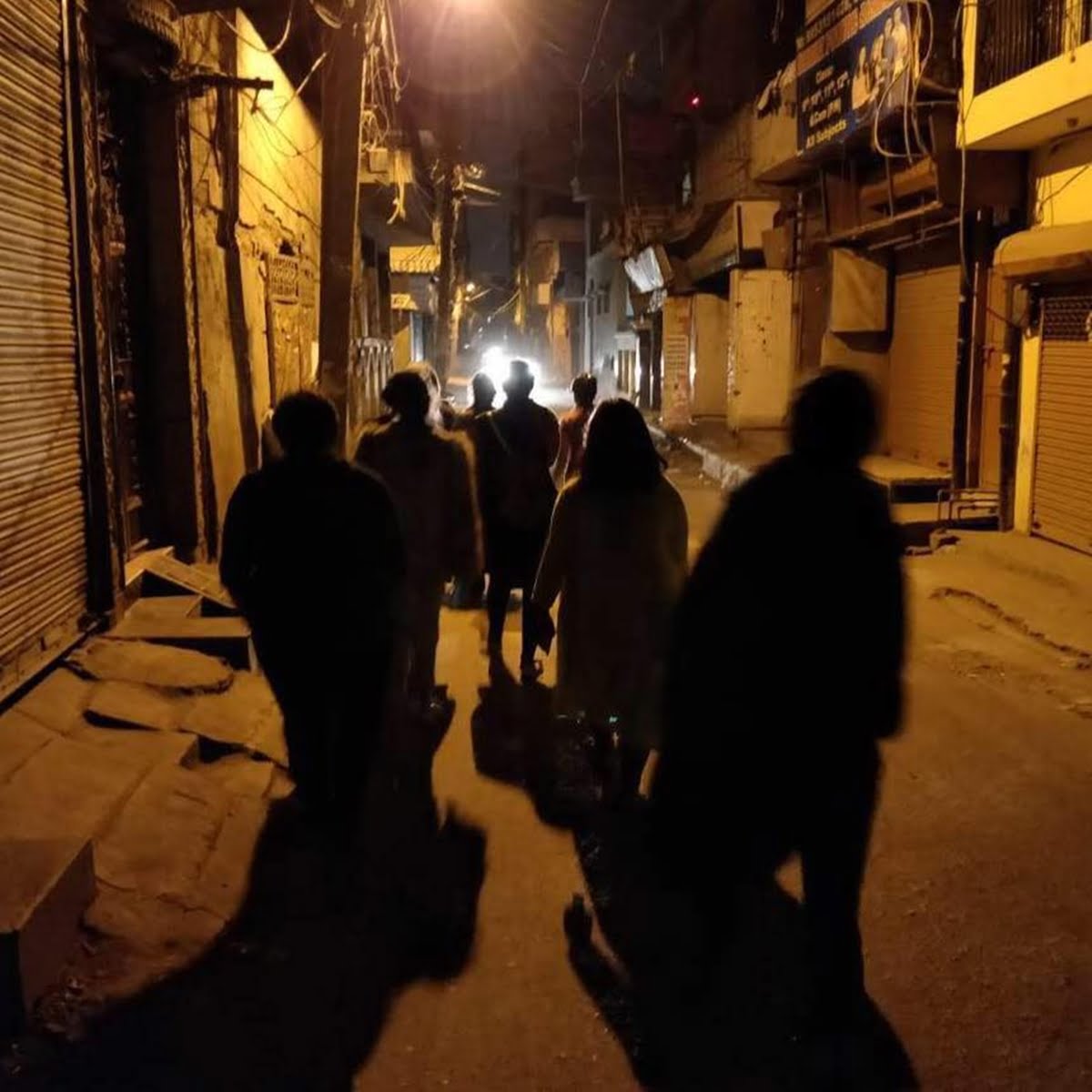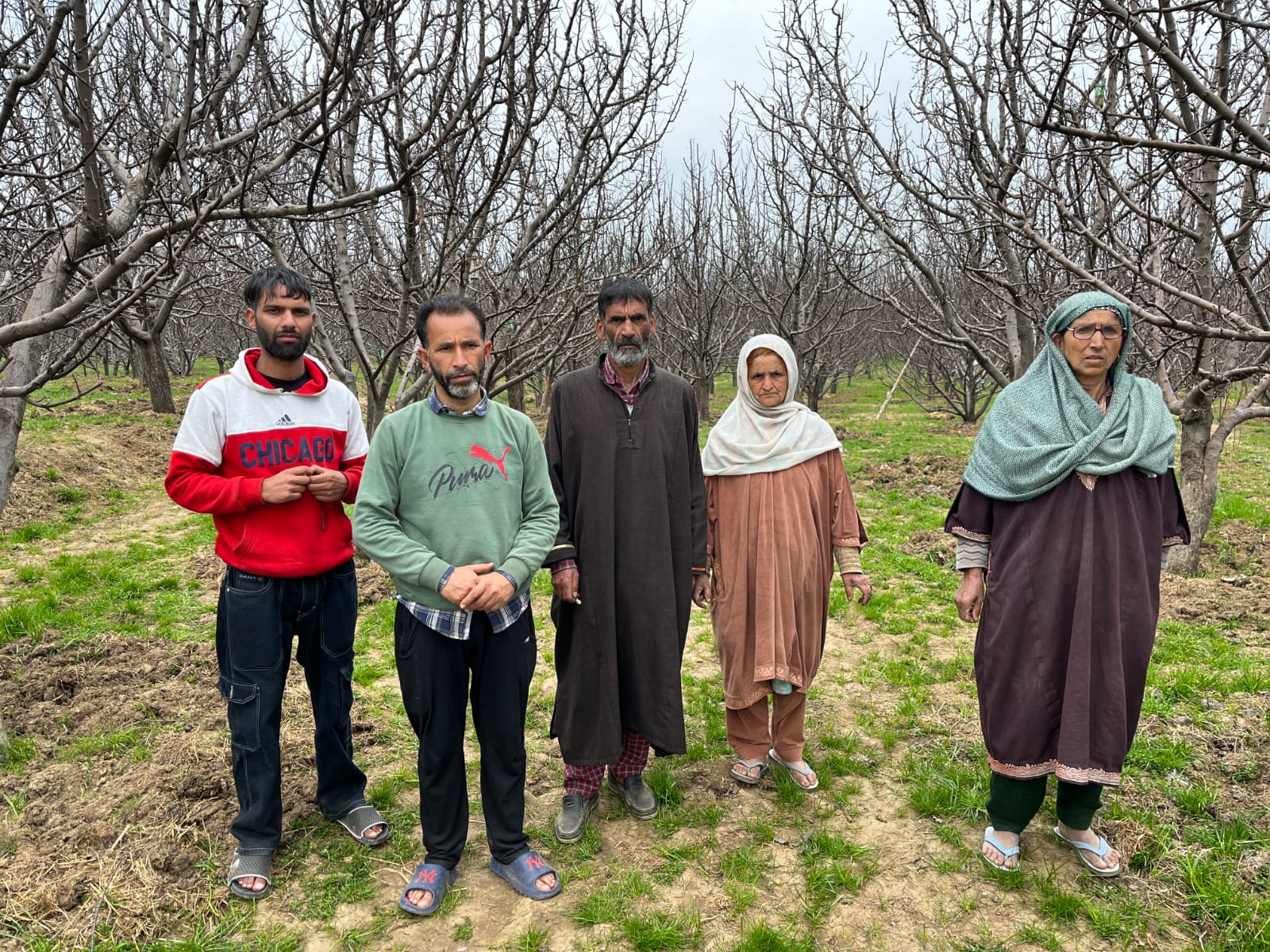I love to walk.
I love to walk on streets strewn with softly cascading Radhachuras in the evening, on pavements buzzing with invites from hawkers at high noon under the comforting shades of their stalls. To walk holding a black umbrella under a gloomy drizzling sky, trying not to splash mud on your calves, and pretending that you are invisible to the pairs of legs rushing past you, is ludicrously fulfilling.
This is the story of one such walk. I was waiting to meet a friend who, typically, was late and was not answering my calls either. It was a peaceful day, so instead of getting mad at him, I decided to ramble along the lanes- go wherever my legs take me. After walking down the main road for five-ten minutes, invariably my legs took me to the inner lanes. It is the inner labyrinths where you will find the stories of that neighbourhood – are there more houses or more flats, what are the houses like, are there kids playing on the street, what are the smells lingering in the air, do you see men playing cards under an Ashwattha that have cracked the pavement open.
Also read: Women In The Streets: Walking Through History, Literature And Activism
Flânerie becomes even more interesting when you successfully manage to get lost. You chalk out a virtual map of the locality from your memory, draw imaginary lines, get excited about finally realising the utility of learning Geometry in school, take the left that, your calculations tell, should bring you back to familiarity – lo and behold, you find yourself in another parallel universe. That day also I was busy getting lost in flânerie, in an empty lane of silent houses drowsy in siesta, with only the sound of a carpenter hammering away on a piece of furniture echoing in the air. That is why I did not notice the other sound at first or did not heed it. But the conspicuously sloppy noise kept following and made me look around involuntarily, out of curiosity. My eager gaze met a man on the opposite pavement, looking at me while his hands were busy down his front. I believe I did not look down to see the actual source of the noise, as the rapid movements of his hands with the noise in the background were premises enough to reach the conclusion. I write, I believe, because my memory of the next few or several minutes is rather hazy. I am quite sure that I stared at him for a few seconds with all the shock, disgust, anger, and disbelief coursing through my body. He did not cower, just carried on with the ambidextrous squirting of his sense of masculine entitlement over the fetishised body of any being that is different from his own in his territory – the street.
I turned my back and walked away as the ringing sound of the hammer ricocheted against my eardrums. Sense came flowing back to my numb hands slowly, as they longed to grab a piece of brick and throw at the man, but my shock, disgust, and a distant realisation of the futility of such an act kept me walking away. At around this time, my friend called, sheepishly pleading guilty of having dozed off, and thirty minutes later we were walking together. We gossiped, we cracked silly jokes, we sipped on tea from a roadside stall, we sat with our legs dangling from park railings and chatted away. Did I tell him about the incident? No, I didn’t. Did I have any less fun with him because of it? No. Did I stop taking these walks? No. I had very ably shelved it away. I even went to my dance class after meeting my friend that day and no traumatic flashes interfered with my body-mind engagement there.
This is how our defense mechanism has evolved to cope with the constant barrage of trash thrown our way by patriarchy. We are reminded, day in day out, that flânerie is the prerogative of the male population. How can womxn dare be the distant observer of the cityscape when the scrutinising eyes of patriarchy are relentlessly trained on our body, keeping us in line. Flânerie is not for womxn, they can be on the streets only for some purpose, to go somewhere or as a consumer. To simply enjoy our presence on the streets, to enjoy flânerie, we have to be either with a male companion or in a group.
Also read: Why Loiter? Book Review: Imagining Our Streets Full Of Women
Flânerie is not for womxn, they can be on the streets only for some purpose, to go somewhere or as a consumer. To simply enjoy our presence on the streets, to enjoy flânerie, we have to be either with a male companion or in a group.
To justify flânerie, aimlessly wandering on and own the street, a womxn has to be either a prostitute or destitute – not that the policing rod of patriarchy does not come down on them whenever it feels like. A thousand don’ts follow us around every day as we leave our homes. They condition us to be on our guard while walking by ourselves in an unfamiliar lane, to hold our body in a particular way, to carry a bag always to guard our body, to chose our outfits as per others’ comfort level rather than our own, to blend in as much as possible, to not look at passers-by directly, to keep talking on the phone (or pretend to) while walking alone, to keep our headphones on to cancel out the wolf-whistles, comments on our body-parts and other unsolicited noises, to be wary if the lights at the bus-stop are broken. Flânerie is out of question, for a womxn.
The city in its entirety is off-limit to us. In order not to threaten the patriarchy, we are expected to behave like second-class citizens on their streets, blinkered and straitjacketed – not supposed to look around, breathe easy, be comfortable and take stock of our surroundings, leaving no space for us to enjoy or even consider flânerie as an option for us on the streets. They think it works – it does not.
In literature, too, the male figure of wayfarers abounds. Even if the history of Indian literature can boast of a few intermittent appearances of women wandering poets – Akka Mahadevi, Mirabai, Lal Ded – our modern Indian literature stretches out like an arid desert in this context. The oases are few and far between. When it comes to discussing womxn and flânerie, one remembers the feminist utopian world in Sultana’s Dream (1905) by Rokeya Sakhawat Hossein, where the protagonist, on stepping out on a street full of people, feels embarrassed. How far has flânerie for women come since her time? Durga in Pather Panchali (1929), mentor to the quintessential nomad in Apu, had to die an untimely death – because no sensitive novelist could stand to write her being married off and chained to domesticity, yet what other future could be awaiting a teenage girl from an obscure Indian village. Bibhutibhushan chose death over bondage for Durga.
Nabaneeta Dev Sen’s flânerie, in her travelogues, in the late 20th century were still exceptional, a womxn travelling on her own or with two daughters was still an act of rebellion. Even then, she had to go out of the stifling ambit of her urban-bourgeois environment to be that rebel. Do we find any account of Nabaneeta Dev Sen, the young poet-scholar, strolling along the dark lanes of North Kolkata at night in an act of flânerie like the anecdotes we find of Shakti Chattopadhyay? We do not – Nabaneeta Dev Sen herself wrote that she could not have afforded to take these liberties. Being a single mother with two daughters to look after, she had to guard her respectability (Bujhi Kalantare Jabe?).

Lauren Elkin, writer of the book Flâneuse: Women Walk the City, suggests that unlike the alienated presence of the flâneur imagined by Baudelaire, Walter Benjamin and other male artist-scholars, womxn explorers of flânerie in the urban space practice engagement by the mere virtue of their presence there. That a huge part of the population with voting rights have to engage in campaigns like #IWillGoOut, #WhyLoiter, Take Back The Night to claim a right as basic as flânerie exposes the real face of the State-Patriarchy consensus. Flânerie, for us, is an act of resistance, of being aware of the eyes glaring down on us and staring right back at those with our body.
That a huge part of the population with voting rights have to engage in campaigns like #IWillGoOut, #WhyLoiter, Take Back The Night to claim a right as basic as flânerie exposes the real face of the State-Patriarchy consensus. Flânerie, for us, is an act of resistance, of being aware of the eyes glaring down on us and staring right back at those with our body.
Also read: “Cycle Waali Chhori”: New Chapters In Loitering & Street Harassment
We reclaim our rights as citizens through flânerie, by wandering on unknown lanes, boarding public buses boasting of places we have never been to, observing people, taking note of the changing lights as the city sky darkens into evening. We walk at a lazy pace by ourselves under the sun, under the bright neon, in darkness. We start conversations with the boy selling incense sticks at the crossing. We hum songs, mutter poetry, break out in a sudden jig on the pavements. We stomp on the foot of the man pushing us from behind on a crowded bus. We chuckle to ourselves and smile at passers-by. We stand on a busy pavement marveling at a remnant of old architecture and the infinite crowd it has witnessed. We voice our support to the womxn being advised to take a taxi instead of commuting by bus. We relax on the seats at the bus-stops. We give our seats on a bus to persons having difficulty standing. We lose track of our stop, end up at the bus depot and laugh at ourselves. We ask strangers for direction. We resist patriarchy by trusting men to be co-citizens and expect them to be allies in our marches in flânerie.
Rituparna is a dancer and writer, with serious interest in literature, education, and performance studies. She is an intersectional feminist and a vocal ally to the cause of environmental justice. Other than being a compulsive reader, she enjoys singing, travelling, cooking, and embroidery. She can be found on Instagram.
Featured Image Source: WeWalkAtMidnight/Facebook




